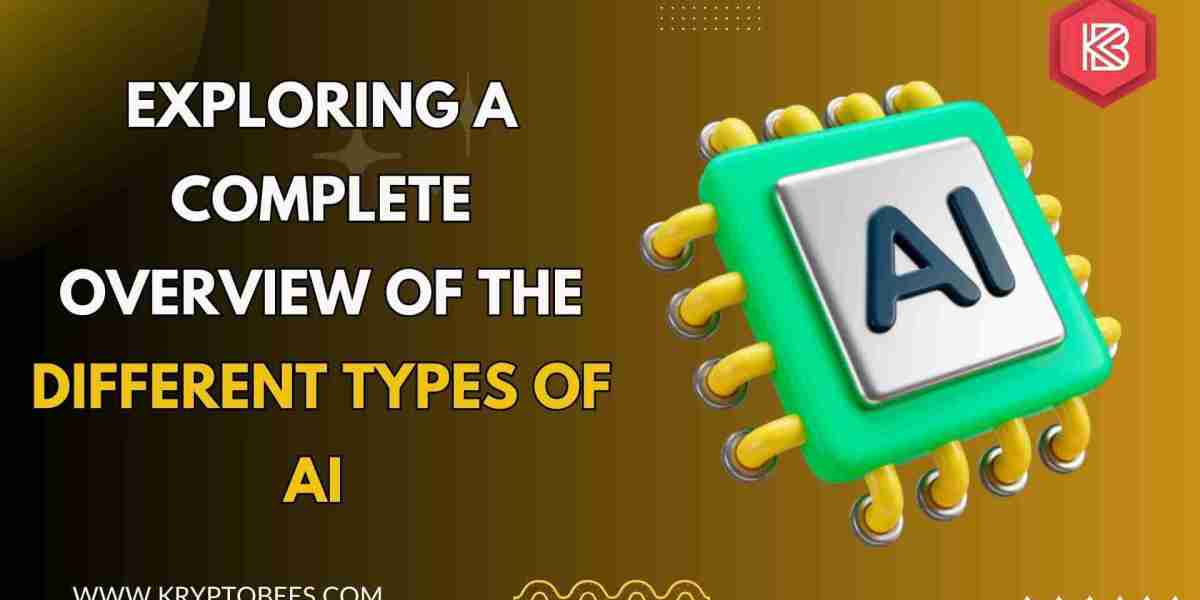Artificial intelligence is advancing at a remarkable pace, with various types to explore. In this article, we delve into the fascinating realm of AI, offering insights into its diverse categories and their roles in shaping our future.
Reactive AI
Reactive AI, also known as Rule-based AI, operates based on fixed instructions and doesn't learn or adapt from experience. It follows preset rules to respond to specific situations, making it predictable and limited in its capabilities.
In Reactive AI:
Fixed Rules: This AI system is designed with clear guidelines and rules dictating how it should act in different situations. Typically, these guidelines are created by programmers or human experts.
No Learning: Reactive AI lacks the ability to learn from data or experiences. It cannot get better with time or adjust to changing conditions.
Limited Scope: This type of AI excels in tasks with a narrow range of applications where the requirements are well-defined and not subject to frequent changes.
Deterministic: The AI's responses are predictable because they are solely based on the programmed rules and don't take probabilities or uncertainties into account.
Example of Reactive AI:
Think of a chess-playing computer program. It moves chess pieces based on predefined rules as soon as you make a move in the game. The computer evaluates the board's situation and suggests the best move using its predetermined rules and strategies.
This chess program doesn't learn new strategies or improve over time. It doesn't remember your preferences or past games. It simply reacts to the current chessboard following its preprogrammed rules.
Self Aware AI
Self-aware AI refers to an artificial intelligence system that possesses the capacity to acknowledge its own existence and comprehend its own condition. This concept entails granting a machine a sense of self-awareness, akin to human awareness of thoughts and emotions.
For instance, picture a chatbot that not only answers your questions but also assesses its own reactions and emotions. When asked how it's doing, it might reply, "I'm currently occupied assisting users, but I'm functioning well." In this response, it demonstrates awareness of its tasks, responsibilities, and limitations.
Furthermore, this chatbot may possess the self-awareness to recognize errors in its responses and express remorse, saying, "I apologize for the mistake in my previous response." It reveals an awareness of its own actions and their potential impact on the conversation.
It's important to note that AI systems with full self-awareness equivalent to human consciousness are not yet attainable. However, researchers are exploring ways to develop AI that can exhibit higher levels of self-awareness and introspection to enhance their interactions with people and adapt to changing circumstances.
Artificial Narrow Intelligence
Artificial Narrow Intelligence (ANI), also called Weak AI, refers to specialized AI systems designed for specific tasks. These systems excel in their designated roles but lack general intelligence or adaptability beyond their predefined functions.
Examples of ANI include:
- Language Translation Services like Google Translate, which can translate text but lack deeper language understanding.
- Virtual Personal Assistants like Siri, Alexa, and Google Assistant, capable of answering questions and performing specific tasks.
- Recommendation Systems on platforms like Netflix and Spotify, suggesting content based on user history.
- Autonomous Vehicles using ANI for tasks like recognizing road signs.
- Chatbots in customer service, following predefined scripts to assist with common queries.
ANI systems are highly task-focused, excelling within their narrow domains.
Artificial General Intelligence
Artificial General Intelligence (AGI), often called Strong AI or Full AI, is a type of artificial intelligence that possesses human-like intelligence and abilities. Unlike specialized Artificial Narrow Intelligence (ANI) focused on specific tasks, AGI can understand, learn, and apply knowledge across a wide range of tasks, much like humans.
AGI aims to achieve a level of consciousness similar to the human mind, making it more like self-aware AI in terms of sentience and capabilities. Unlike rule-based AI, AGI is designed to learn from its environment, similar to human learning and adaptation.
Currently, AGI is a theoretical concept, and we use AI systems with limited capabilities. Examples include Watson, ChatGPT, and Bing AI, which excel in complex tasks. However, the realization of true AGI, with human-like consciousness, remains a hypothetical idea for the future.
Theory of Mind
Theory of Mind AI involves artificial intelligence systems having the ability to understand and attribute mental states like thoughts, beliefs, intentions, and emotions to different entities, including humans and other AI systems. Think of it as giving AI the capability to imagine what might be going on in the minds and feelings of others.
To achieve this, Theory of Mind AI utilizes various AI techniques such as computer vision, machine learning, and natural language processing. It's designed to comprehend human language rather than just mimic it.
While AI is advancing, we haven't quite reached the level of fully achieving Theory of Mind AI as seen in science fiction. However, researchers are actively working on developing AI systems that can come close to these abilities to some extent.
Limited Memory
Limited memory AI refers to systems that make decisions or predictions based on a small amount of recent data, instead of using vast historical datasets. This approach is used when storing and processing extensive historical data isn't practical.
Examples include:
Online Advertising Recommendations: Platforms like Google and Facebook use limited memory AI to suggest ads based on a user's recent online activity.
Self-Driving Cars: Autonomous vehicles rely on limited memory AI to make real-time driving decisions by processing recent sensor data from cameras, lidar, and radar.
Stock Market Trading: AI-based trading algorithms often use limited memory to analyze recent stock price movements for making trading decisions, considering a limited window of past data.
Artificial SuperIntelligence
Artificial Superintelligence (ASI) is a theoretical idea in AI, imagining a system that outperforms humans in every area. It's often called "superhuman AI" and represents AI that not only matches but greatly surpasses human intelligence, creativity, problem-solving, and adaptability.
Final Thoughts,
The world of artificial intelligence offers a range of AI types, from specialized Narrow AI to the aspirational goal of human-like Artificial General Intelligence (AGI). AI technologies are rapidly evolving, offering limitless potential across industries. Investing in AI is essential for staying competitive in the digital age.
At Kryptobees, we're a leading AI Development company, dedicated to harnessing AI's power to meet your unique needs. Partner with us to unlock AI's potential for your business and shape a successful future. Join us in shaping the future with Artificial Intelligence.



